Mexico
2012
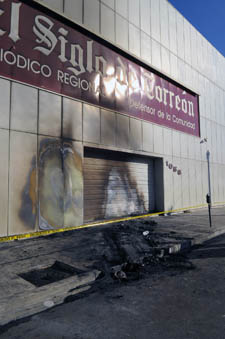
Amid Mexican impunity, paper in the crossfire
It was 3 o’clock in the morning on Tuesday, November 15, 2011, when a car stopped in front of the offices of El Siglo de Torreón, the most widely read newspaper in the northern Mexican states of Coahuila and Durango. The driver pulled the vehicle onto the shoulder, stepped out, poured gasoline on it, and…
In Mexico, two media outlets attacked within a week
New York, March 27, 2012–Mexican authorities must investigate attacks on a newspaper and TV station in the northeastern state of Tamaulipas and ensure the offices and its staff members are protected, the Committee to Protect Journalists said today. Both attacks occurred within the space of one week.
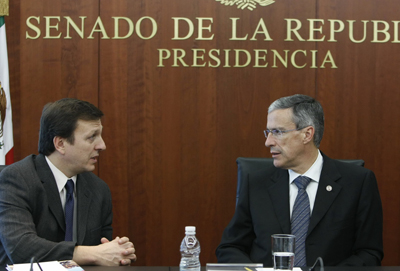
Mexican Senate backs federalizing anti-press crimes
New York, March 13, 2012–The Committee to Protect Journalists hails the Mexican Senate’s landmark approval today of a constitutional amendment that, if passed by a majority of states, would federalize anti-press crimes and transfer investigative powers to national authorities.
CPJ welcomes Mexican anti-press crimes legislation
New York, March 13, 2012–The Committee to Protect Journalists welcomes the Mexican Senate’s approval today of a constitutional amendment that makes attacks on the press a federal offense and calls on authorities to end the widespread impunity for crimes against journalists.
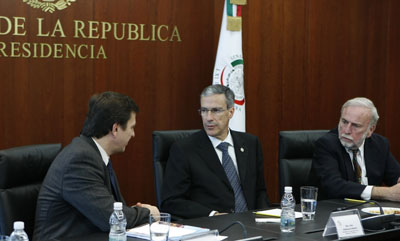
Mexican senators say journalist murders to be federal crime
With near impunity in the murders of journalists a persistent reason for the terror and self-censorship among Mexican news organizations, legislators say the national Senate is on the verge of passing a constitutional amendment that would allow federal authorities to take over cases of crimes against freedom of expression. Passage would mean that the typically…
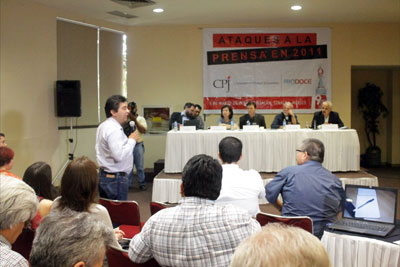
Solidarity in Sinaloa: Journalists, others address crisis
A unified front is crucial when facing a crisis in press freedom like that in the violent state of Sinaloa in Mexico, Colombian journalist and CPJ board member María Teresa Ronderos said this week. She was speaking to a packed room of print, radio, and television reporters; members of civil society groups; state legislators; union…
Online news sites as battleground for Mexican drug war
I’m in Culiacán, the capital of the Mexican state of Sinaloa. Part of my work here has been to investigate and highlight the cyber-attacks that the award-winning weekly local newsmagazine Ríodoce has encountered in its coverage of the violent drugs war here. But discussing the experiences of online editors at other publications here has shown…
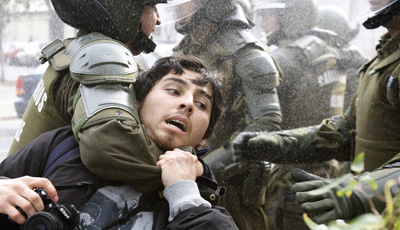
Attacks on the Press in 2011: Abolishing Censorship
Even as trade and new systems of communication turn us into global citizens, the information we need to ensure accountability often stops at national borders. New platforms like social media are valuable tools, but the battle against censorship is hardly over. By Joel Simon